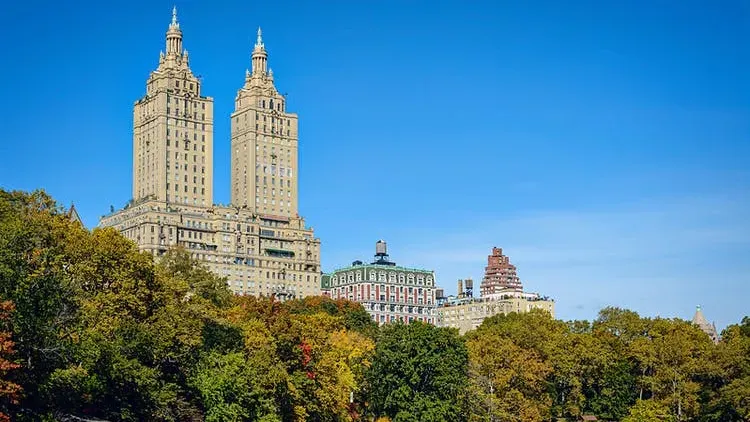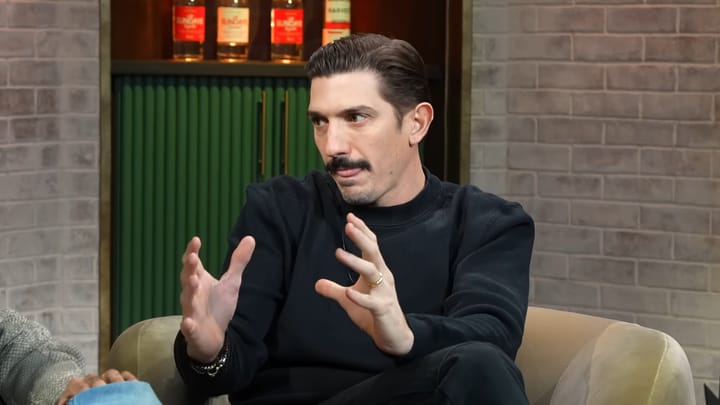How To Get Rich In Comedy, Part II
Dani Zoldan's "MoviePass for comedy clubs" service received $153,266 in federal performing arts relief. Venues participating in the program say nobody's ever used it.

For the last four months, Stand Up NY owner Dani Zoldan has been raising hell about the Shuttered Venue Operators Grants, a federal stimulus program designed to bring financial aid to live arts venues devastated by the pandemic. When the application portal launched with disastrous technical failures in April, he posted about it. When the Small Business Administration planned for its relaunch on a Saturday—Shabbos—he posted about it. When months went by without any grants awarded, he posted about it, took to the radio, went on TV, asked Joe Rogan and Mark Cuban to raise awareness, and even called on comedians to stop performing. When the SBA disbursed grants to massive cultural institutions before many smaller venues like his comedy club—say it with me—he posted about it.
According to data released yesterday by the SBA, all that posting paid off. Stand Up NY finally received a grant of $657,587 to allocate towards payroll, rent, utilities, independent contractor payments, and a range of other expenses. But that's not all. The SBA also gave an SVOG to Zoldan's company LaughPass. You may recall LaughPass from my February newsletter about Zoldan, who took forgivable Paycheck Protection Program loans for three Stand Up NY side businesses of which he appeared to be the sole employee. (He seemed to confirm on Twitter that he was, saying the piece made him "look like a boss." Then he organized a comedy festival in my city.) One of those businesses was LaughPass, a MoviePass-like subscription service that charges customers a monthly or annual fee to see "unlimited" shows at 30ish comedy venues around the country. Last year it received a PPP loan of $16,713 for its single reported employee. This time around it received an SVOG award of $153,266.
Here's where things get interesting. SVOG applicants could apply in six different categories: live venue operators or promoters; theatrical producers; live performing arts organization operators; museum operators; motion picture theater operators; and talent representatives. SBA records indicate that LaughPass applied as a live venue operator or promoter. Now, the statute establishing the SVOG program lays out fairly strict eligibility criteria for applicants in each category. Here are some of the requirements for live venue operators:
-Must own a venue and/or operate a venue on behalf of an owner
-Must have principal business activity as either:
(1) hosting live concerts, comedy shows, theatrical productions, or other events by performing artists with not less than 70% of the Live Venue Operator’s earned revenue coming from ticket sales/cover charges, sales of merchandise/food/beverage (incl. alcohol), production fees/reimbursements, and/or nonprofit educational initiatives
(2) selling tickets to live concerts, comedy shows, theatrical productions, or other events by performing artists an average of not less than 60 days before the show date
-Must pay performers based on a percentage of sales, a guarantee, or other mutually beneficial arrangement other than compliementry [sic] food and beverage
And here are some of the requirements for promoters:
-Must organize live events by performing artist [sic] by doing all of the following:
(1) renting or owning a performance site
(2) contracting with artists or a production company for the performance
(3) marketing the events
(4) collecting an admission fee or gate receipts
-Must have both:
(1) a profit interest (net income or loss interest) in the live event’s presentation
(2) sole or joint rights to control the financial terms of the live event’s presentation, use of the venue, and/or marketing of the event
-Must have the principal business activity as either:
(1) Selling tickets to live concerts, comedy shows, theatrical productions, or other events by performing artists an average of not less than 60 days before the show date
(2) Promoting live concerts, comedy shows, theatrical productions, or other events by performing artists with not less than 70% of the Promoter's earned revenue coming from ticket sales/cover charges, sales of merchandise/food/beverage (incl. alcohol), production fees/reimbursements, and/or nonprofit educational initiatives
-Must pay performers based on a percentage of sales, a guarantee, or other mutually beneficial arrangement other than compliementry [sic] food and beverage
LaughPass is by all appearances a subscription service. Its website describes it as "an annual membership that grants you access to unlimited comedy shows at venues across the country plus great perks, like VIP seating and free tickets for your friends." Members pay a fee to see however many shows they want, but LaughPass does not itself appear to sell individual tickets, produce shows, or contract with and pay comedians. I suppose one could argue that selling "access" to live comedy is just selling other venues' tickets, but this is clearly not how the service markets itself. Even if it were, the SBA's determination that brokers and resellers don't qualify as venue operators or promoters seems relevant: Its reasoning is that performers are not paid from brokers' and resellers' transactions, and that their principal business activity—"the line of business in which the entity has the greatest combined amount of revenues, expenses, employees and work hours, assets, contracts, and other business activity"—is not selling tickets but reselling them. What do we think is the principal business activity of a company that charges you a fee to see other companies' comedy shows? Finally, while it's certainly not impossible, it would strike me as highly unusual if a middleman web platform earned 70% of its revenue from shows at its partner venues, and even more unusual if it had "sole or joint rights" to dictate financial terms, venue usage, or marketing.
Neither Zoldan nor the SBA immediately responded to my inquiries; I will update this post if and when they do. (Update, Tuesday evening: the SBA replied immediately after I hit publish to inform me that it doesn't comment on individual awardees and to direct me to the eligibility criteria.) I did manage to get ahold of five venues listed on LaughPass's website, each located in different states. Given my personal experience of Zoldan's reactions to critical coverage, I'm omitting their names; none are in New York. They all said the same thing: Nobody has ever used LaughPass at their venue, there was no enrollment fee or revenue share involved, and after they joined the program they never heard from LaughPass again. One person told me their initial conversations with LaughPass barely even touched on money, which they found dubious, and that there was no exchange of money or financial information. This person remarked that it seemed like more of an advertising operation than anything else.
Here are two final things to keep in mind as you contemplate LaughPass's $153,266 SVOG award. One is that Dani Zoldan ran an illegal online pharmacy when he was 19 years old and proudly wrote about it seven months ago. The other is that Stand Up NY, which itself received an SVOG award of $657,587, does not pass performers without two TV credits. Earlier this year it pledged to pay some comics six bucks, but Zoldan quickly walked this back on Twitter. In fact, he clarified, it would only cover their train fare.
Thank you for reading! This newsletter is free, but making it isn't. If you can, please help keep Humorism going by subscribing for six bucks a month:
Header image via Diana Robinson/Flickr.


